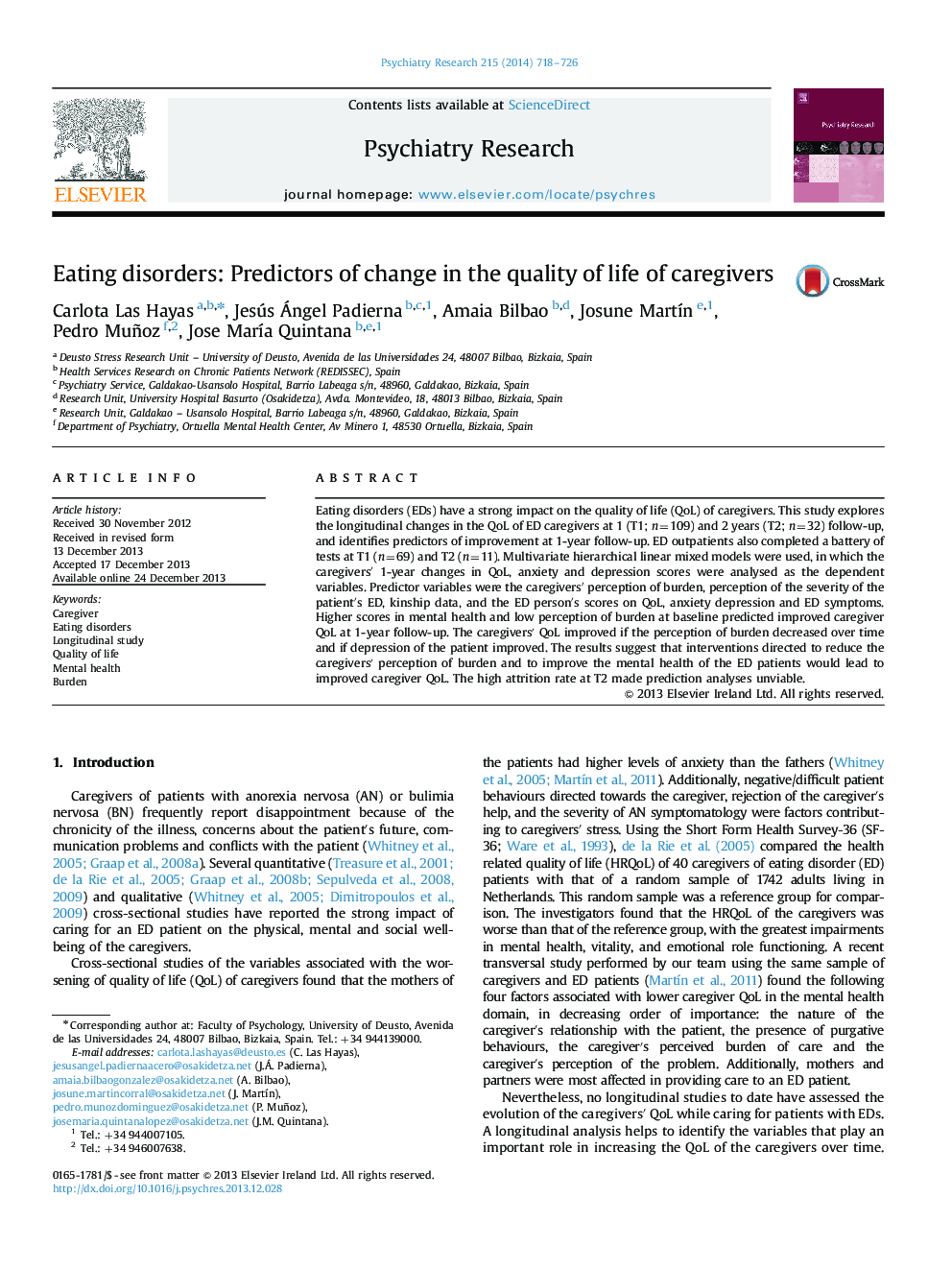| Article ID | Journal | Published Year | Pages | File Type |
|---|---|---|---|---|
| 10303911 | Psychiatry Research | 2014 | 9 Pages |
Abstract
Eating disorders (EDs) have a strong impact on the quality of life (QoL) of caregivers. This study explores the longitudinal changes in the QoL of ED caregivers at 1 (T1; n=109) and 2 years (T2; n=32) follow-up, and identifies predictors of improvement at 1-year follow-up. ED outpatients also completed a battery of tests at T1 (n=69) and T2 (n=11). Multivariate hierarchical linear mixed models were used, in which the caregivers' 1-year changes in QoL, anxiety and depression scores were analysed as the dependent variables. Predictor variables were the caregivers' perception of burden, perception of the severity of the patient's ED, kinship data, and the ED person's scores on QoL, anxiety depression and ED symptoms. Higher scores in mental health and low perception of burden at baseline predicted improved caregiver QoL at 1-year follow-up. The caregivers' QoL improved if the perception of burden decreased over time and if depression of the patient improved. The results suggest that interventions directed to reduce the caregivers' perception of burden and to improve the mental health of the ED patients would lead to improved caregiver QoL. The high attrition rate at T2 made prediction analyses unviable.
Related Topics
Life Sciences
Neuroscience
Biological Psychiatry
Authors
Carlota Las Hayas, Jesús Ángel Padierna, Amaia Bilbao, Josune MartÃn, Pedro Muñoz, Jose MarÃa Quintana,
